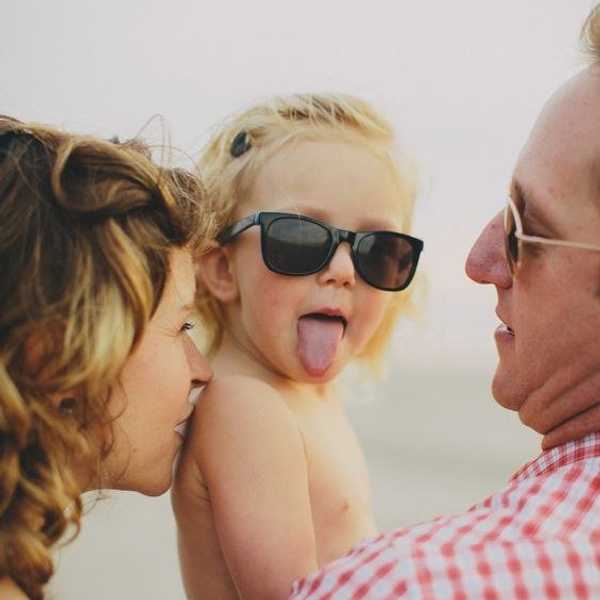Cinema always lets me down when they have a character with autism because their portrayal of autism is always the same — a super talented genius that is a doctor or can memorize a piece of music in one sitting. But that's not reality, not all who are on the spectrum are like this and autism is vastly different for each person.
Studies show that 1 in 59 kids are diagnosed with autism spectrum disorder (ASD) by the time they are 8. ASD includes Asperger's, high-functioning, and low-functioning. Aspergers is a very high functioning autistic that can live an independent life like you and me, but may face certain challenges and/or have trouble with social skills. Someone with higher functioning autism can usually go to school, read, write, and talk, but may need assistance in various things depending on the severity.
Most low functioning autistics are nonverbal (do not have conversational skills), most have a secondary diagnosis of mental retardation (due to how hard it would be to test their mental capacity), and most will never be independent. Depending on the level of severity, kids with autism can go to school and be in a classroom with their peers to being in a specialized school that only teaches kids with that disability.
One of these is called Glenwood, they offer to learn verbal behavior skills, problem behavior reduction, improving social skills, and so much more. They offer residential and outpatient services where they either live on or off-campus/at home during their therapy. They have a childhood and adult service/care and their mission is to treat children and adults impacted by ASD and children with severe emotional and behavioral disorders.
My 22-year-old brother is a severe, low-functioning, nonverbal autistic who, mentally, is the age of 2-3 years.
My parents noticed that he never reached communicational mile steps like other kids, but they just figured he was speech and language delayed. Caleb got the ASD diagnosis at 3 years old and things got drastically worse from there. He went from a vocabulary of 25 words and a rambunctious, laughing child to one who lost his words and curled himself into a ball rocking himself.
As my mom would describe it, "it was like someone had taken my child and left a shell."
At the ages of 5-7 years, he started getting more violent and self-harming. Caleb would hit his head against concrete because he didn't want to go back inside, smash himself into the wall because his DVD had so many scratches that it wouldn't work, but in his mind, he didn't know why the DVD wouldn't work and why we weren't fixing it.
My parents always referred to this as "the dark days" because "they were trapped in their own home." While they were out in public, Caleb would most likely have an autistic tantrum and may strip down naked in the process — they were afraid that DHR would get involved and having two special needs/very medical children wouldn't help their case.
Even at the ages of 5-7, Caleb was mentally 12-15 months old. He would empty out lotion bottles on the floor and would fight our parents, and he was around 50 pounds at 5 years old (autistics are known to be very strong). In Caleb's mind, he didn't understand why things wouldn't work or that he wasn't allowed to do certain things so he would get angry and the only way he knew how to communicate was through his actions — especially when he was angry.
Caleb's behavior and level, or disability, got to the point that our parents and the school system needed more specialized help, that's where Glenwood came in. He was evaluated and qualified for Glenwood's residential school program. In this program, he goes to school, receives behavioral therapy, speech therapy, vocational therapy, daily living skills, social skills, and personal independence. They set school and house goals where he gets rewarded when he masters them. The routine and structure they provide are essential to his and others well being. He comes home one weekend a month and one-week-long visit on major holidays. He is always happy to come home and happy to go back.
Caleb has improved immensely since he's been at Glenwood and has learned things that he would have never learned if he didn't go to Glenwood. These may be small achievements, but for our family, it's made a world of difference for the better. He's much calmer due to the therapies, medication, and the schedule he's on, he can now use the bathroom on his own and even closes the door (sometimes), writes his name, uses words to tell us what he wants, and he more patient than before. He has learned small tasks including, separating laundry and cleaning any mess he makes. But even though he's made a lot of progress, he still has bad days, he still gets frustrated and if things don't go as planned, he will get so angry he breaks things and may try to hurt himself and others in the process. If it's during a home visit we try to calm him down the best we can.
Glenwood is amazing and has taught Caleb so many things and we couldn't thank them enough, but due to his severity, he will never be independent. Caleb is nonverbal, meaning he can't have a conversation with him and we still have to give him a bath, shave him, brush his teeth, make his food for him, drive him everywhere, and more. Caleb and others like him will always be dependent on others for the rest of his life. In my eyes, I'm mentally the oldest sibling who will forever have a 3-year-old brother trapped in a 22-year-old body and it has matured me for the rest of my life.





















